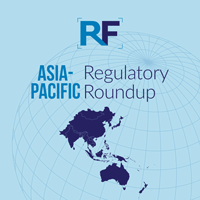Asia-Pacific Roundup: TGA updates timeframe for prescription medicines registration process
 AsiaMedical DevicesOceaniaPharmaceuticalsProduct LifecycleRegulatory Intelligence/Policy
AsiaMedical DevicesOceaniaPharmaceuticalsProduct LifecycleRegulatory Intelligence/Policy AsiaMedical DevicesOceaniaPharmaceuticalsProduct LifecycleRegulatory Intelligence/Policy
AsiaMedical DevicesOceaniaPharmaceuticalsProduct LifecycleRegulatory Intelligence/Policy